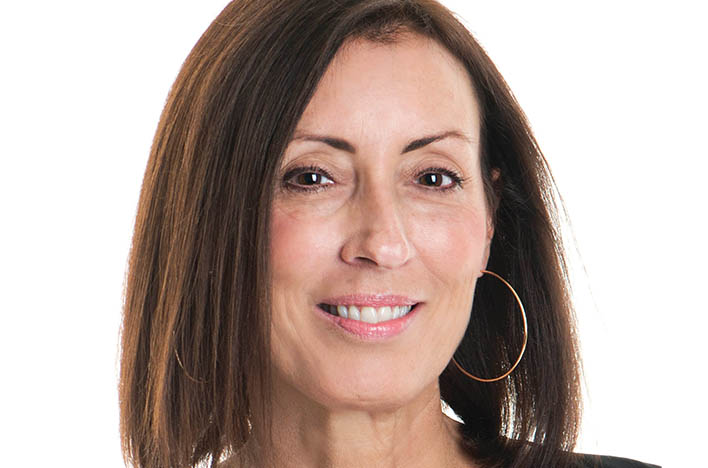Suffice it to say that Shelly DeMotte Kramer has had more than a few professional lives.
She’s lived the corporate life, the direct-marketing life, the jewelry-designer life, the single-mom life, the mom-with-adult-children-and-babies- simultaneously life, and the serial- entrepreneur life. Most people will tell you that she’s forgotten more about the Internet and how to use it for good than many of us have ever known.
Today’s life? Kramer is running her companies, V3 Broadsuite, which focuses on marketing consultancy, and Broadsuite Media Group, aka BMG, a media company; 2016 saw the launching of Futurum Research, a research and analyst firm. Kramer is charged with running the marketing consulting agency and the media company, and her partner runs the research and analyst firm.
Her entrepreneurship began by accident, she said. Bored in a job, and wondering what else life had to offer, she decided to strategically plot her next move when she was 34 years old.
“I turned down a ton of job offers that came my way as a result, and then those same people who offered me jobs came back and asked me to do consulting work with and for them,” she said. “Twenty-some years later, here I am, owning a marketing consulting agency, a media company, and a research and analysis firm.”
The 20 years have given her insight and wisdom she is eager and willing to share.
TB: Tell me about some early successes? Early struggles?
SDK: I tend to be a bit of an optimist, so if I had early struggles, I’ve forgotten most of them. I was a single mom for 16 years, so there’s the challenge of building a business and also making sure you’re there for your kids.
There was a time when I took on clients that I didn’t particularly care for because I had kids to feed and bills to pay.
I remember one client who was incredibly misogynistic, and he was a peach. I would lay out a plan and a strategy and he would question it. Then I learned to bring one of my male colleagues along with me, let him lay out the same plan and strategy, and he would think it was the greatest, smartest thing ever.
I couldn’t wait to fire him, and as soon as I had a client or two to replace him, he was gone.
TB: How did you transform yourself into an expert in a still new/always changing industry?
SDK: I realized early on the power the internet had and how it was going to change business, and the way people and businesses communicate with (and buy from) one another in big ways. I set out early to plant a flag in the digital space, to learn everything I could, to experiment, build strong networks and not be afraid to share my thinking or ideas.
TB: What are the challenges of managing a team in the world today?
SDK: I have been very fortunate over the years and have built an amazing team. When you have the skill set that our team possesses, another job is literally available right around the corner. So making sure the employee experience you create within your company is a compelling one, and figuring out how to give people work that they enjoy, with clients or projects they enjoy working with or on, and making sure they know they are valued and appreciated is more important now than ever before.
I’m very proud to have created a culture and an environment that supports working women, most of whom are moms. My older kids sacrificed a lot in the early days, when I was making my way in the business world. They made do without me infinitely more than I would have preferred. But that was the way of the world back in those days.
Thankfully, with the “second crop” of kids that I’ve been blessed to have, I’ve been able to craft a work experience that allows me to be both a business owner and a mom, without totally sacrificing my kids’ childhood as a part of the bargain.
TB: What advice would you give a new entrepreneur?
SDK: Try and be true to yourself. Find something that you love to do and apply yourself to that with all you’ve got. You’ll find that doing that will be less of a job and more of a passion project or a personal mission. That said, you’ve got to make sure that whatever it is you’re building, developing, growing, etc., is something that solves a problem and for which there is market demand.
Develop a trusted network – not comprised of friends. Present your ideas or concepts, ask for your network to poke holes in your hypotheses and/or assumptions about your idea and your audience. Listen to that feedback; it might well be the difference between success and failure.
The companies who understand marketing, and who understand their target audiences in a very personal way, and who allocate a budget to marketing that will allow them to be successful—those are the companies and the brands who win.

